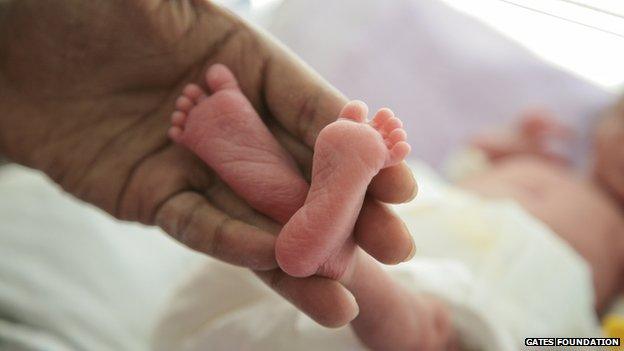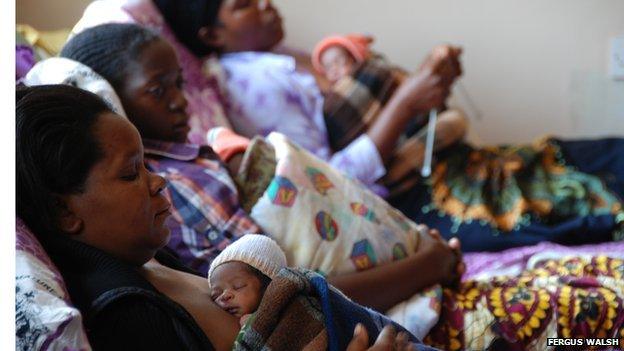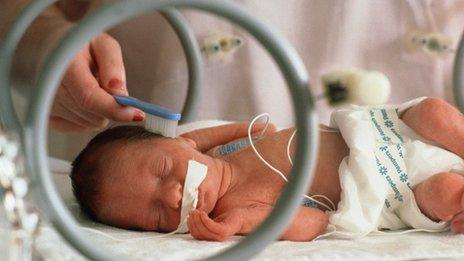Premature birth 'biggest killer'
- Published
- comments

Fifteen million babies are born too soon every year
Premature birth is now the biggest global killer of young children.
A study in the Lancet, external shows it accounts for more than one million deaths per year - mostly in the developing world.
The complications of childbirth accounted for another 720,000 deaths a year.
Being born too soon - when the lungs, brain and other organs have not developed - can make babies highly vulnerable.
These figures are significant as for the first time neonatal conditions have overtaken infectious diseases such as pneumonia - as the biggest childhood killer.
Prof Joy Lawn of the London School of Hygiene & Tropical Medicine, one of the report authors, said: "The success we've seen in the ongoing fight against infectious diseases demonstrates that we can also be successful if we invest in prevention and care for pre-term birth".
The report authors argue that two thirds of these deaths could be prevented without intensive care.
"Kangaroo care", where babies are carried skin-to-skin on the mother's chest, is one simple intervention which is being promoted worldwide.
The technique keeps the baby warm and makes breastfeeding easier.

"Kangaroo care" in action in Malawi - skin-to-skin contact helps keep premature babies warm
Most of the deaths occur in the world's poorest countries, with some of the highest rates in West Africa - where the risk will be even greater now due to Ebola.
Epidemic
The worldwide mortality rate among the under-fives has declined from 76 to 46 deaths per 1,000 live births since 2000.
Most of the reduction has been due to progress made in protecting children from diseases like pneumonia, diarrhoea, measles and malaria.
The mortality rate among premature babies has also fallen, but at a far slower rate. As a result, deaths in the first 28 days after birth now make up an increasing proportion of childhood mortality.
"Some 7,600 newborns die daily" said Andres de Francisco, of the Partnership for Maternal, Newborn and Child Health. "We have an epidemic of pre-term and newborn deaths that represents one of the greatest health challenges of the 21st century. "
Mortality linked to pre-term birth is also an issue for developed nations despite childbirth itself being safer than ever.
In the UK pre-term birth complications account for 1,400 child deaths a year - more than double the number in France or Italy.
Obesity and later motherhood are among the risk factors for prematurity, as is the rise in the rate of Caesarean deliveries.
But many of the causes remain unknown.
Prof Lawn told the BBC: "Even very premature babies are surviving in the UK due to improvements in medical care.
"But babies can spend an average of three months in intensive care. This is traumatic for families and many end up with long-term health complications. It is also hugely expensive for the NHS."
Landmarks including the Empire State Building, Brandenburg Gate and Bosphorus Bridge are being lit purple to mark World Prematurity Day on Monday. In England the First Direct Arena in Leeds will be illuminated.
- Published16 September 2014
- Published15 November 2013
